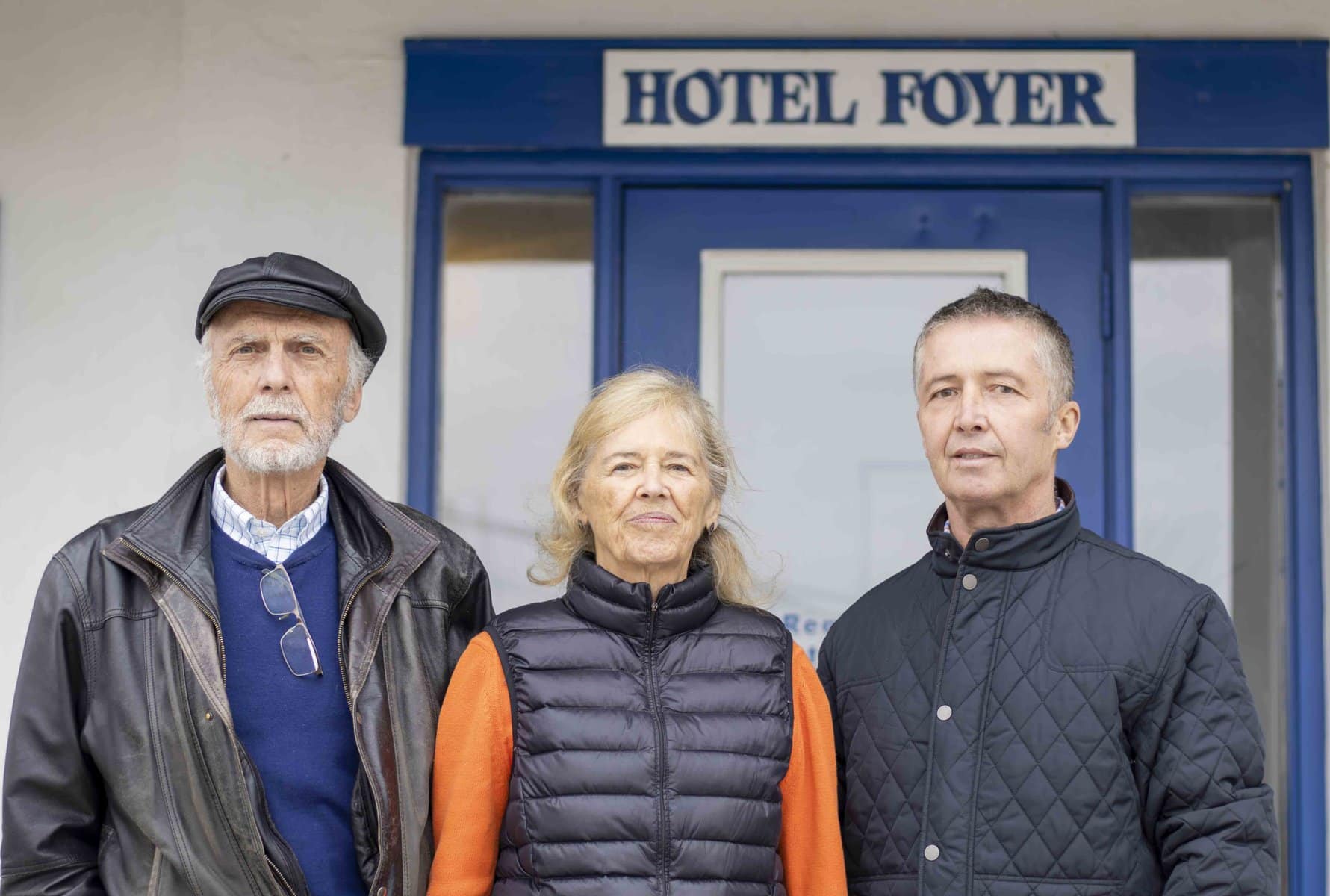Down by the docks, some residents are upset to see their feedback on a condo proposal went nowhere.
Resident Jim Reynolds was an early critic of developer Blythwood Homes’ plan to build condos at the site of the old American Hotel on Melville Street.
Reynolds said he didn’t bother to attend the committee of the whole’s planning meeting on Oct. 3, during which the project was approved, after he saw all the other projects on the agenda.
The three-storey condo building was the “least hot of the potatoes” being juggled by council at that meeting, he said.
The development at 61 Melville St. was one of four projects on the consent agenda: prior to reviewing consent agenda items, public meetings were held for four development proposals.
“There’s not a groundswell of huge opposition to this thing,” Reynolds said.
He speculated that his neighbours are just happy the development plan is for condos and not a hotel.
One of his neighbours, Andrew Cardarelli, said he was happy it was shorter than the original proposal from Blythwood Homes, which was almost twice as tall.
Still, Cardarelli said he would prefer to see the building set back a little farther from Lockhart and Delater streets.
A staff report said the proposed building would be farther back from Delater and Melville than the existing King George III Inn.
The report, by planning director Kirsten McCauley, said the proposed setbacks were similar to that of the hotel and condominium on either side of it.
Cardarelli said he did not speak at the public meeting on the project June 17.
“I guess I thought there was going to be open commentary at a later date,” he said.
The resident, who is an architect, said he felt misled for thinking as much and would have spoken up if he knew it was his last chance to speak.
Both residents felt neighbourhood feedback was ignored.
“We had our opportunity to say what we thought,” Reynolds said, referring to the public meeting.
The town, he said, had “essentially ignored any of our concerns,” given nothing about the proposal changed since it first came forward.
The site plan presented during the open house and public meeting dates show a maximum building height of 12 metres – the same height in the approved site plan from Oct. 3.
In her report, McCauley said the proposed height of the building would make it incompatible with the surrounding neighbourhood.
Resident Ron Simkus first shared his concerns regarding the development’s design at a virtual open house meeting on May 17.
He said he is less concerned with the development and more concerned about the infrastructure that would be needed to support it.
A former mining engineer, Simkus said he is especially concerned with the flooding infrastructure in the dock area.
Since the docks are vulnerable to flooding from Lake Ontario, Simkus thinks developers need to take extra steps to keep their properties above water.
New proposals are also taking up increasingly more space, Simkus said in an interview after the condo proposal was passed by council.
The development covers 67 per cent of the lot space at 61 Melville St..
Simkus recalled that when his home was built, it could not take up more than 33 per cent of the lot – and many of the developments being proposed today are bigger.
“If you’re going to keep building bigger houses on smaller lots, you’re just going to push the water out of your yard into somebody else’s,” he said.
Council approved the condominium, but not without discussion.
Councillors asked a couple questions about shadow studies and whether the units would be used as short-term rentals.
Coun. Wendy Cheropita said it would be “wonderful” to have an up-to-date short-term rental bylaw before proceeding with applications like the one for Melville Street.
The zoning change the developer requested would not permit future owners to use the structures for short-term rentals, McCauley said.
The town’s short-term rental bylaw states: “Only buildings that have been occupied as a single detached dwelling for a minimum of four years shall be eligible for a licence.”
Reynolds, however, was not satisfied by the town’s rulebook.
“Rules are only as good as the enforcement that they put in,” he said.
At the meeting, Couns. Gary Burroughs, Tim Balasiuk and Cheropita asked whether the developer had provided a shadow study on the property.
Shadow studies are done to demonstrate the impact a multi-storey development will have on the current location and surrounding properties, based on the shadow pattern it would cast.
McCauley said no study was provided, but that the surrounding buildings are similar in size and scale. Burroughs contested this statement.
“The building is substantially larger than the buildings around it, not the next condo building,” he said.
Balasiuk asked if the project could be appealed to the Ontario Land Tribunal, which resolves land development disputes, if council refused.
McCauley confirmed that if the developer appealed it would be sent to the tribunal.









